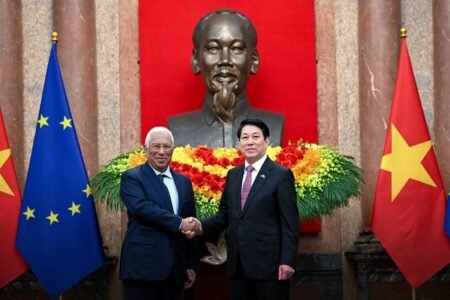This Regulation establishes common rules for exports from the European Community (EC) based on the principle of freedom of export and to define the procedures enabling the Community to implement, where necessary, the surveillance and protective measures required.
Advertisement
ACT
Council Regulation (EEC) No 2603/69 of 20 December 1969 establishing common rules for exports [Official Journal L 324, 27.12.1969].
SUMMARY
This regulation lays down the principle that exports from the European Community to third countries are free, that is to say, they are not subject to any quantitative restrictions.
However, this principle of freedom of export does not preclude the Member States from maintaining or introducing quantitative restrictions or bans on exports on grounds of public morality, public policy, public security, etc.
In 1992, all derogations to the principle of freedom of export granted to the Member States in relation to exports of certain products were eliminated.
Scope
The regulation applies to all industrial and agricultural products covered by the EC Treaty. With regard to agricultural products, it is complementary to the regulations establishing common organisation of agricultural markets and the special regulations for processed agricultural products.
From a geographical point of view, it applies to all third countries. Council Regulation (EEC) No 2604/69 of 20 December 1969 extended the regulation to cover the French overseas departments.
Information and consultation procedures
The regulation establishes a Community procedure for information and consultation to be followed before implementing protective measures. If, as a result of unusual developments on the market, a Member State considers that protective measures might be necessary, it must inform the Commission accordingly, which will then advise the other Member States. Consultations may thus be held at any time within an advisory committee composed of representatives of each Member State and chaired by a representative of the Commission. These consultations relate, in particular, to the export conditions and trends for the product in question as well as the measures, if any, to be adopted.
The Commission may request Member States to supply statistical data on market trends in a given product for the purpose of assessing the economic and commercial situation. It may also ask them to exercise surveillance over given products in accordance with their national legislation and with the procedure specified by the Commission.
Protective measures
Protective measures may make it possible to prevent or remedy a critical situation brought about by a shortage of essential products, or allow international commitments entered into by the Community or all the Member States to be fulfilled, in particular those relating to trade in primary products. In addition, the Community’s interests must require the adoption of appropriate measures, which generally means quantitative restrictions on exports.
These protective measures may be limited to exports to certain countries or exports from certain regions of the Community. They must not affect products already on their way to the Community frontier. However, the measures may not be adopted for agricultural products covered by common organisations of markets or processed agricultural products covered by special regulations adopted within the framework of Article 308 of the EC Treaty (ex-Article 235).
In principle, protective measures are adopted by the Council, acting by a qualified majority on a proposal from the Commission. The Commission may also implement such measures where immediate action is required. The Commission, acting at the request of a Member State or on its own initiative, may make the export of a product subject to the production of an export authorisation, the granting of which shall be governed by such provisions and subject to such limits as the Commission shall lay down pending subsequent action by the Council. The Council and the Member States shall be notified of the measures taken and they shall take effect immediately.
A Member State may also, as an interim protective measure, make the export of a product subject to production of an export authorisation, the granting of which shall be governed by such provisions and subject to such limits as that Member State shall lay down. The Commission shall be notified of these measures immediately and they shall apply only until the decision taken by the Commission or the Council takes effect.
During their application, protective measures are the subject of consultation on the advisory committee with a view to examining their effects and ascertaining whether the conditions for their application are still satisfied. As a result, they may be amended or revoked if they are longer necessary.
REFERENCES
Regulation (EEC) No 2603/69 – 31.12.1969 – OJ L 324 of 27.12.1969
Amending acts:
Regulation (EEC) No 2604/69 – 31.12.1969 – OJ L 324 of 27.12.1969 Regulation (EEC) No 3918/91 – 1.1.1992 – OJ L 372 of 31.12.1991
RELATED ACTS
Proposal for a Council Regulation of 20 February 2008 establishing common rules for exports (Codified version) [COM(2008) 89 final – Not published in the Official Journal]. Written procedure (2008/0034/ACC).







